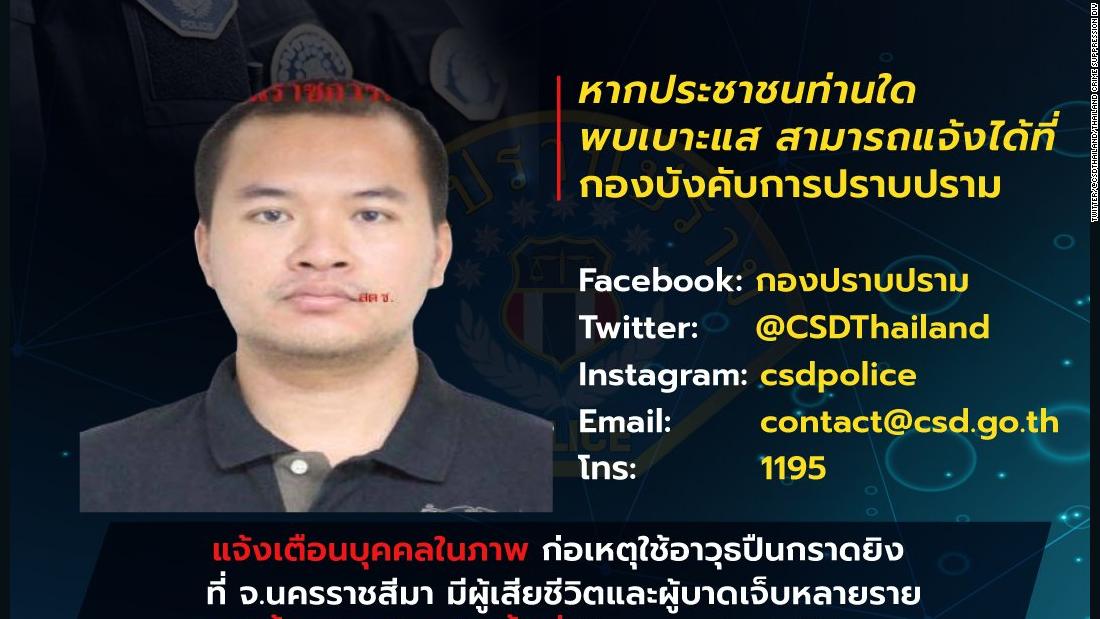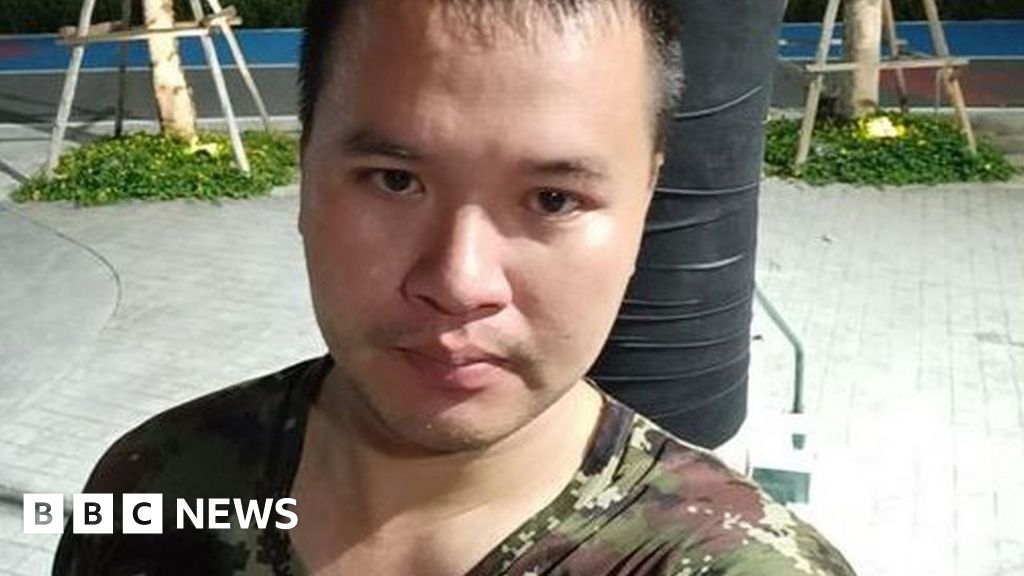Here’s what you need to know:
- An American in Wuhan has died from the coronavirus.
- Lawyer who reported on conditions in Wuhan has gone missing, friends say.
- The illness gets a name, temporarily.
- France announces five more coronavirus cases, all British citizens.
- One city’s plan for getting people to the doctor: Ban medicine.
- Hong Kong, a wounded city, sustains another blow.
- Deaths in China reach 722, and infections climb past 34,000.

An American in Wuhan has died from the coronavirus.
A United States citizen has died from the new coronavirus in Wuhan, China, in what appeared to be the first death of an American from the outbreak.
Few details about the American, who died on Thursday, were immediately available. The person was around 60 years old and died at Jinyintan Hospital in Wuhan, according to the United States Embassy in Beijing. Two people familiar with the matter said the person was a woman and had underlying health conditions.
“We offer our sincerest condolences to the family on their loss,” said a spokesman for the embassy. “Out of respect for the family’s privacy, we have no further comment.”
Japan said on Saturday that one of its citizens had died in a Wuhan hospital, from what was suspected to be a case of the coronavirus. But the Japanese Foreign Ministry said that based on information it had received from the Chinese authorities, it could not confirm whether the man, who was in his 60s, had been infected. The ministry said the cause of death was viral pneumonia.
Another Japanese citizen has also been diagnosed with the coronavirus, the authorities said on Saturday. A man in his 20s, among 198 people who returned from Wuhan by government-sponsored charter plane to Tokyo on Friday, was said to have tested positive for the virus and been hospitalized.
The Health Ministry said that the man had exhibited no symptoms when he boarded the flight in Wuhan, but was running a fever by the time he landed and had developed a mild case of pneumonia.
Lawyer who reported on conditions in Wuhan has gone missing, friends say.
A lawyer who had provided a rare glimpse into the dire conditions in Wuhan, the epicenter of the coronavirus outbreak, has gone missing, his friends say, expressing fear for his safety.
The lawyer, Chen Qiushi, who is based in Beijing, had been reporting from Wuhan since the city went into lockdown last month as the authorities scrambled to contain the virus.
In a series of video blogs and footage posted on Twitter and sometimes on YouTube, which are both blocked in mainland China, Mr. Chen documented the plight of patients and the shortage of hospital supplies, and he warned of cross-infection in Wuhan’s mass quarantine sites.
A friend who is currently managing Mr. Chen’s Twitter account said contact had been lost with him on Thursday.
The friend, who requested anonymity to protect the account’s security, said Mr. Chen had recognized the risks that came with his journalistic work from the beginning and had shared his passwords with friends as a precaution, in case he would one day be detained.
Xu Xiaodong, a prominent mixed martial arts practitioner in China, also said on Friday that he had lost contact with Mr. Chen, his friend. In a video message on Friday, Mr. Xu said that Mr. Chen’s parents had been told that their son had been quarantined because he had visited several hospitals and risked contracting the virus.
“I’m announcing this because I’m scared! Because the next one could be me,” Mr. Xu tweeted on Friday.
Mr. Chen made headlines last summer when he visited Hong Kong to report on the city’s antigovernment demonstrations and challenged portrayals by Chinese state news media that the protesters were rioters.
The illness gets a name, temporarily.
The Chinese government has announced a temporary name for the illness caused by the coronavirus, ordering the local authorities and state news media to adopt it. In English, it will be called N.C.P., for novel coronavirus pneumonia, the national health commission said on Saturday.
A final, official name will eventually be chosen by the International Committee on Taxonomy of Viruses. The organization has submitted a name to a scientific journal for publication and hopes to reveal it within days, the BBC reported.
The naming of viral illnesses is a complicated matter that involves both science and public relations. Past names, like the Spanish flu or Rift Valley fever, have been seen as contributing to the stigmatization of countries or regions. In 2015, the World Health Organization issued new guidelines, after the choice of the name for Middle East respiratory syndrome, or MERS, was criticized.
As well as avoiding place names, those guidelines recommend not using people’s names (Creutzfeldt-Jakob disease, Chagas disease), animal names (swine flu, equine encephalitis), cultural or occupational references (Legionnaires’ disease) or words that induce fear (unknown, death, fatal, epidemic).
The W.H.O. has recommended its own temporary name for the new illness: 2019-nCoV acute respiratory disease, or 2019-nCoV. But the name is difficult to pronounce, and has been less popular than “coronavirus,” which describes a larger category of viruses.
“We thought it was very important to put out an interim name so that no location was associated with the name,” Maria van Kerkhove, a W.H.O. epidemiologist, told the body’s executive board on Friday.
France announces five more coronavirus cases, all British citizens.
On Saturday, the French health minister confirmed five new cases of the coronavirus, including four adults and one child — all British citizens — bringing the total in France to 11.
The minister, Agnès Buzyn, said during a news conference on Saturday morning that the latest cases formed “a cluster, a grouping around one original case” and had been traced to an infected British citizen who had traveled from Singapore.
Ms. Buzyn told reporters that the Briton stayed in Singapore from Jan. 20 to Jan. 23 and arrived in France on Jan. 24. The person stayed in the small town of Les Contamines-Montjoie, in southern France.
Before returning to Britain on Jan. 28, the infected person came into contact with 11 people, all Britons, with whom he lived in the same house, she said, adding that all of them had been hospitalized to monitor their condition.
One city’s plan for getting people to the doctor: Ban medicine.
Hangzhou, a Chinese city with a population of 10 million, said it would temporarily ban the sale of flu and cough medicine at pharmacies, in an effort to compel people who might be sick to see a doctor.
In a statement, which was issued at midnight Friday and took effect immediately, the local government said the policy was created to “strengthen the supervision of those with fevers and coughs.”
To stop the spread of the coronavirus, the Chinese authorities have taken increasingly draconian measures to curb travel, impose social distancing and track those who might be sick. Several cities in the eastern province of Zhejiang, including some sections of Hangzhou, have set limits on how often people can leave their houses, generally allowing one person to leave every few days to buy groceries. Paper passports have been printed to keep tabs on residents.
As such restrictions have increased, so have people’s fears about being suspected to have the virus. Some have complained that sites set up for quarantines do little to separate people who are already sick from those who have no symptoms, but who are from an area that experienced an outbreak. In recent weeks, several articles in Chinese news media have told of people who used medicine to suppress coronavirus symptoms to pass through the country’s now ubiquitous fever-screening checkpoints.
Some wondered what those with chronic illnesses were supposed to do if they couldn’t get medicine they needed to relieve their symptoms. Others worried that the policy would speed the spread of the virus by forcing many more people to go to hospitals, where some carriers of the virus would likely be.
Hong Kong, a wounded city, sustains another blow.
Hong Kong had already suffered through months of political protests. Its economy is shrinking, and mistrust divides its people from its leaders.
Now the coronavirus is dealing Hong Kong, Asia’s financial capital, another devastating blow. Airlines are cutting service. Schools are closed. Panicked residents are hoarding rice, face masks and — in the latest run — toilet paper.
In the air is a new emotion for a city where the glimmering skyline once seemed to promise riches and opportunity: fear.
“We don’t know when it will end or how much worse it will get,” said Amber Suen, a flight attendant with Cathay Pacific, the beleaguered Hong Kong airline that on Wednesday asked its 27,000 employees to take three-week unpaid furloughs to save money.
The new coronavirus, which has killed hundreds and sickened thousands in mainland China, has been much less prevalent in Hong Kong. One person has died and at least 25 have been infected, mostly while traveling in the mainland. Its hospitals are respected around the world.
The world is not drawing a distinction, however, in part because the city has tightened but not fully closed the border with the mainland.
The multinational companies that helped make the city global are restricting travel there. Some are advising or requiring returning employees to quarantine themselves. And getting to Hong Kong is becoming increasingly difficult. Virgin Australia joined United Airlines and American Airlines in cutting service. Italy has suspended flights from Hong Kong, while the Philippines and Taiwan are requiring arrivals to go into quarantine.
Deaths in China reach 722, and infections climb past 34,000.
The death toll and the number of infections have grown again, according to official data released early Saturday.
Across China, 86 new deaths and 3,399 new cases emerged in the previous 24 hours, the national health authorities said.
The new figures brought the total number of deaths in China to at least 722. And the total number of confirmed cases rose to 34,546.
Most of the newly reported deaths, 81, occurred in Hubei Province, the heart of the outbreak.
Many doctors believe that deaths and infections in China are undercounted because testing facilities at hospitals and laboratories are under severe strain.
A Wuhan native feels ‘innocent, but implicated.’
Julie Zhong, a 24-year-old from Wuhan, knows she has had to endure less than many other people from her city, where the new coronavirus first appeared.
She had planned to move to Shanghai after a three-week trip with her family to Hainan, a holiday island off China’s southern coast. But then the outbreak happened. After Hainan officials took the family’s temperature, they began a self-imposed quarantine for 14 days.
The quarantine is over. But her plans to move to Shanghai, where she is supposed to start a new job on Feb. 17, are in limbo. Hotels she called in the city told her that people from Hubei Province, which includes Wuhan, were not welcome. One said she could have a room, but only if she underwent another 14-day quarantine.
“I’m innocent, but implicated,” she said. “It makes me really angry.”
Many people from Wuhan have fared worse under a countrywide campaign to identify and isolate anyone who has recently been to the city. Ms. Zhong said that prejudice and anger directed toward people from her hometown was misplaced.
“Is it the fault of people from Wuhan? It’s not. If it comes from eating wild meat, then the problem is the government didn’t control it well enough,” she said, referring to the food market in Wuhan where the illness is thought to have originated.
“You can’t just dump everything on the heads of those from Wuhan,” she added.
The Communist Party sends high-ranking officials to the epicenter.
China’s ruling Communist Party sent two senior officials to Wuhan to reinforce efforts to bring the coronavirus outbreak under control, amid rising public anger over the handling of the crisis.
State media reported on Saturday that a deputy head of the National Health Commission, Weng Hesheng, and the general secretary of the Central Political and Legal Affairs Commission, Chen Yixin, would take charge of the fight to contain the epidemic in Hubei Province, where Wuhan is situated.
It was not immediately clear if the appointments amounted to a reshuffling of the provincial and city leadership or were simply an effort to reinforce officials on the front line. Still, it appeared to be an acknowledgment that the authorities in Wuhan have been overwhelmed as deaths and infections continue to soar.
Mr. Chen was previously party secretary in Wuhan and deputy party secretary for the entire province. Mr. Weng has held a variety of positions overseeing public health and family planning in the city of Tianjin and, since 2016, on the national level.
The appointments came a day after the State Supervisory Committee, a powerful anticorruption body, announced that it would send a team to investigate the circumstances surrounding the death of a Wuhan doctor, Li Wenliang. Dr. Li was punished by health officials and the police for privately warning colleagues in December about the mysterious new illness that was appearing in Wuhan’s hospitals.
It is rare for the party to react directly to public pressure, but Dr. Li’s death provoked such an outpouring of public anger and grief that it appears to have forced the party’s hand.
Travel to Asia slows, even to destinations far from China.
Travelers to Asia, even to countries far from the epicenter of the virus in China, are beginning to reconsider their plans.
Hard data on cancellations is scarce, as airlines, hotels and travel boards say they do not yet have numbers or will not share them. But tour operators, travel insurance brokers and airline employees say they are facing growing numbers of customers changing their plans.
Brian Fitzgerald, president of Overseas Adventure Travel, a company providing group tours to travelers mostly over 50, said it encountered cancellations to China through April in the wake of the outbreak’s announcement. But this week, he said, tourists scheduled to go to Cambodia, Laos and Vietnam were reconsidering as well.
January data from April Travel Protection, an insurance provider, which tracks residents in the United States traveling to every country in the world, shows that claims with an Asian country in the itinerary more than doubled compared to January 2019.
More than 20 international carriers have suspended or restricted routes that ended in Wuhan and other major Chinese cities, including Beijing, Hong Kong and Shanghai.
A new report has unsettling details about how the virus spreads.
A report published on Friday on 138 coronavirus patients in Wuhan has disturbing details about the illness and how it spreads. Many of the patients — 41 percent — were presumed to have been infected in a Wuhan hospital, including 17 people who were already hospitalized for other illnesses, and 40 health care workers.
One patient is thought to have infected more than 10 health care workers in the hospital’s surgical department, where the person was admitted because of abdominal symptoms, and the coronavirus was not initially suspected.
The authors of the report, which was published in the Journal of the American Medical Association, said their data suggested that rapid person-to-person spread of the virus had occurred among their cases. That was partly because of patients like the one admitted to the surgical department, who had symptoms that misled doctors into suspecting other illnesses and failing to take precautions to prevent the spread of the virus.
Another cause for concern is that some patients who appeared mildly or moderately ill at first took a turn for the worse several days or even a week into their illness. The median time from their first symptoms to when they became short of breath was five days; to hospitalization, seven days; and to severe breathing trouble, eight days. Experts say that pattern means patients must be carefully monitored, and it is not safe to assume that someone who seems to be doing well early on is out of the woods.
Car factories are idling in China, raising global concerns.
Chinese car and auto parts factories may stay closed longer than expected because of the coronavirus, increasing the chances that assembly lines in Asia, Europe and the United States could grind to a halt because of shortages of components.
Several automakers including BMW, PSA and Toyota have delayed restarting their assembly lines in China by another week, and others appear likely to follow suit. Even a relatively brief interruption in the flow of parts and materials could have far-reaching effects, analysts said.
The shutdowns at Chinese factories have hit automakers from several angles. The virus is already causing them to lose sales in China, the world’s largest car market by far. If they are forced to shut down factories outside of China because of parts shortages, as Hyundai has already done in South Korea, they could also lose sales in other regions.
The blow to the auto industry, which employs eight million people worldwide, comes at a time when output from the world’s factories is already sagging. It is likely to amplify the human and economic cost of the outbreak.
Reporting and research were contributed by Raymond Zhong, Jack Ewing, Steven Lee Myers, Claire Fu, Paul Mozur, Motoko Rich, Hisako Ueno, Alexandra Stevenson, Austin Ramzy, Tiffany May, Emily Palmer, Reed Abelson, Katie Thomas, Denise Grady and Constant Méheut.
https://news.google.com/__i/rss/rd/articles/CBMiRGh0dHBzOi8vd3d3Lm55dGltZXMuY29tLzIwMjAvMDIvMDgvd29ybGQvYXNpYS9jb3JvbmF2aXJ1cy1jaGluYS5odG1s0gFIaHR0cHM6Ly93d3cubnl0aW1lcy5jb20vMjAyMC8wMi8wOC93b3JsZC9hc2lhL2Nvcm9uYXZpcnVzLWNoaW5hLmFtcC5odG1s?oc=5
2020-02-08 14:37:30Z
CAIiEMB3hNDRygXb0SR6c6Q64J8qFwgEKg8IACoHCAowjuuKAzCWrzwwt4QY





